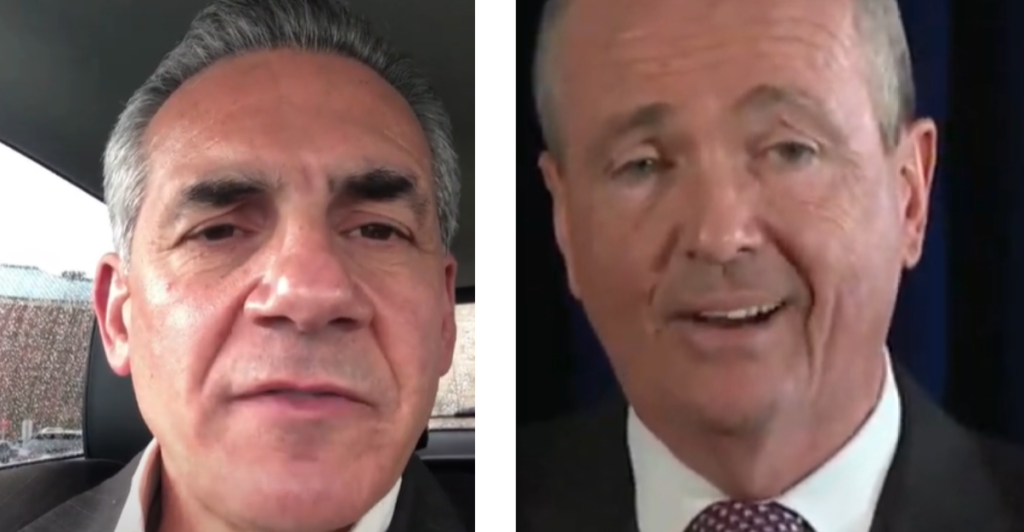Flag Day 2021: For Both Parties, It's Trump 2.0, Divide and Prosper

This Flag Day, which is supposed to encourage national unity around a common symbol, marks the start of the first full week of the campaign for New Jersey Governor which is likely to show just how fractured and divisible we remain.
Just months after an angry mob tried to violently disrupt the Jan. 6 certification of the 2020 presidential election results, it would appear the political consultants for Jersey’s Republicans and Democrats don’t think a dignified campaign could prevail. One would have hoped that if ever there was a time to seriously rethink the way we do our politics, 2021 would have been it.
Yet, both major party candidates’ campaigns have already gone negative, tearing down their opponent in the worst possible light to elevate themselves from the start. You would think after what the state, the nation and so much of the world is still going through, the two men vying for the state’s top job would take a more constructive tone.
Instead, they are making the campaign about each other, not the difficult circumstances of so many of its people who were living in the margins for years before the pandemic.
Historically, going negative early jacks up the cost of the broadcast and social media buy as attack begets attack. This spiraling cycle of escalation helps to line the pockets of the media outlets and the consultants who get a cut of the action in the form of a commission but leaves the public diminished.
In New Jersey, where you need to disparage an opponent in both the high-priced Philadelphia and New York City media markets, it can all quickly add up. Everybody prospers except the electorate who are force fed the grainy negativity about the other guy day after day, 24-7.
Republican Jack Ciattarelli thinks Gov. Murphy isn’t authentically Jersey.
Politico quoted the freshly minted GOP candidate in his victory speech as saying Murphy “wasn’t raised here, never went to school here, never worked here, never ran a business here. He’s somebody else. I’m you. I mean, have you seen this guy eat pizza? How about we elect a Jersey guy?”
The Democratic Party responded to Ciattarelli by countering he had “staked out a policy agenda that is fundamentally out of step with New Jersey. He supports Republican voter suppression tactics, opposes raising the minimum wage to $15 per hour, and would cut funding for much-needed women’s health programs and for schools. The only state that would call Ciattarelli a moderate is Mississippi.”
If this is where we are in June, where can we expect things to be by the fall?
In a research paper entitled “Going Negative-How Negative Campaigns Shrink the Electorate, Manipulate the News Media”, researchers for Stanford University’s Political Communications Lab looked at the media tone and coverage of dozens of U.S. Senate races throughout the nation. Researchers Steven Anslolabehere and Shanto Iyengar explored the synergy between negative campaigning and the news media itself.
“Negative advertisements make particularly tasty morsels for the media,” the Stanford study found. “For journalists, it is a no-lose situation when candidates attack one another. Allegations of dishonesty and incompetence lay the seeds of controversy and scandal. Even if the charges prove to be false, reporters can always rail against the candidate who aired the attack for slandering his or her opponent and engaging in sleazy campaigning. The fight itself often becomes the story.”
After a while it feeds on itself as “political consultants cater to the incentives facing newsrooms. Campaign managers produce materials that journalists can easily use. Copies of advertisements are regularly sent to television news stations and newspaper op-ed page editors even before the spots air.”
But there are consequences when “politicians, interest groups, and journalists all act in ways that serve their own best interests.”
“Public regard for politicians has sunk to an all-time low; by wide margins, Americans believe that governmental institutions inflict more harm than good on their collective well-being,” according to the study. “The more the campaign rages, the less we seem to respect and like any of its contestants, or even the contest itself.”
And over time the Stanford paper posits “negative campaigning may diminish the power of civic duty and may undermine the legitimacy of the entire electoral process. Campaigns that generate more negative than positive messages may leave voters embittered toward the candidates and the rules of the game.”
Donald Trump took this to a whole new level of depravity, but our general trajectory downward into the soulless dominion of American politics had long been established fueled by seemingly an infinite supply of hidden money.
Could it be the way we actually practice what has increasingly become a dark art has done long term collateral damage undermining community cohesion in other realms like say public health? Have decades of political negativity stunted our ability to even act in our basic collective self-interest by doing important things like wearing a mask or getting a vaccine?
Has it made it impossible for us to reach consensus on even who won the last election?





